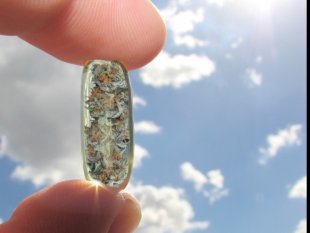While much ink has been spilled over the last few days regarding DEA’s refusa [3]l to recognize marijuana as a medicine and its unwillingness to reclassify it under federal law, far less attention has been paid to a separate decision by the agency to create, for the first time, a “clear legal pathway” for pharmaceutical companies to engage in cannabis-specific “drug product development.”
The DEA’s intent is articulated in the August 11 edition of the US Federal Register, available online here [4], in a notice entitled ‘Applications to Become Registered Under the Controlled Substances Act to Manufacture Marijuana to Supply Researchers in the United States.’ A summary of the document provided by the agency states, “To facilitate research involving marijuana and its chemical constituents, DEA is adopting a new policy that is designed to increase the number of entities registered under the Controlled Substances Act to grow (manufacture) marijuana to supply legitimate researchers in the United States.”
At first glance, this change would appear to be a welcome one. After all, since 1968 federal bureaucrats have permitted only a single agency – the University of Mississippi [5]via an exclusive contract with the US National Institute of Drug Abuse – to legally produce cannabis for FDA-approved research trials, an arbitrary prohibition that does not exist for other controlled substances [6] and that has led to limited drug supplies [7] and accusations [

